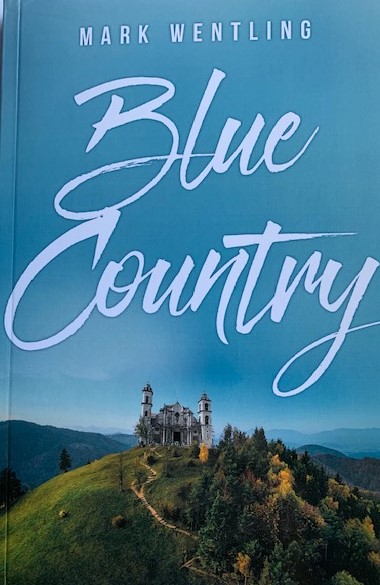Review — BLUE COUNTRY by Mark Wentling (Honduras)
 Blue Country
Blue Country
by Mark Wentling (Honduras 1967–69, Togo 1970–73); PC Staff: Togo, Gabon, Niger 1973–77)
Page Publishing
204 pages
August 2019
$16.95 (paperback), $9.99 (Kindle)
Reviewed by Mark D. Walker (Guatemala 1971-73)
•
I’ve been looking forward to the author’s next book after thoroughly enjoying Africa’s Embrace, which is part of his African Trilogy. I reviewed his book Dead Cow Road, which took place in Somalia, so I’m familiar with the author’s ability to spin an interesting yarn about far off places. The author’s work and travels span more than 46 years, which have taken him to 54 African countries. The author worked with USAID, the U.S. Foreign Service, CARE International and World Vision, making him an ideal person to spin this tale of international intrigue and political struggle in Central America.
Although the author was a Peace Corps volunteer in Togo, he was also a volunteer in Honduras for five years, so I’ve been waiting for a story that took place in Central America.
The author’s story includes unexpected twists and turns moving from the death and destruction of one town to the rebuilding of a new town by survivors who lived to tell the story. Human foibles, very common in Central America, are displayed through many of the novel’s characters. A magical realism reminding me of the works of Gabriel Marques and “100 Years of Solitude,” lead to survival, love and marriage with an underlying evil below the surface, including an unforeseeable event, which defines the future of people in two countries.
The story is told through the eyes of a young man, and offspring of a saintly mother who died giving birth to him, who becomes aware of the social injustices behind an elitist power structure. Although my favorite perspective comes from a rat, who is the young man’s only company for years. He shares his concerns and frustrations with the rat throughout:
Juan Eduardo wanted to weep as he recounted this heartbreaking episode of his young life, but his eyes could no longer produce tears. “Savior.” Are you listening? I promise not to tell you again my sad story. Soon, there will be no more story telling because there will be no more me.
Miraculously, his rodent companion saves his life when he almost succumbs to the torture and abuse of his prison confinement:
Juan Eduardo was breathing irregularly and close to expiration when he felt a feathery touch on his lips. He cracked open one eye to see a furry rodent attempting to place bits of mush in his mouth . . ..
Fortunes are determined by a violent border dispute and a heated soccer match, which leads to a brief but deadly war between neighboring countries. One of the more hilarious scenes is when the Air Force of the smaller invading country drops bombs through the passenger door of a passenger airliner. Funny, but not implausible for a small Central American country, and this is where the story intersects with the real world. In this case, the “Soccer War,” also known as the “one-hundred-hour war,” between El Salvador and Honduras during a World Cup qualification round. It began on July 14th and ended on the 18th of July.
Some of the same demographic and immigration issues that plague Central America today were just as real in 1969. El Salvador had more people than it could feed and Honduras had open space taken up by large cattle ranches and farms. Consequently, 300,000 El Salvadorians invaded Honduras over the years. And the National Federation of Livestock and Farms pressured the Honduran President to protect their rights as landowners (the elite depicted in this story). The attempts by the Honduran government to throw these “squatters” off their land was complicated by the inter-marriage that had taken place.
Our young hero, Juan Eduardo, miraculously escapes prison as one of the bombs dropped from above during the “Soccer War” fell on the prison he was confined in. Consequently, he walked away to freedom, leading to a hopeful vision for the future.
All that was needed was competent, honest, and well-meaning leadership that put first the best interests of the country and the people. With hard work and the discipline required to stay on course for the long run, a new and better future for the upcoming generation was possible. Much-needed persistent hope would rise again from the ashes to create a better way forward.
As someone who lived and worked in Central America for many years, I can empathize with the author’s optimistic picture for the future, although this vision is tainted by the recent indictment of the Honduran President’s brother on narcotic trafficking charges and U.S. prosecutors saying that the President received a fortune in drug bribes. All of this makes this tale both magical and timely.
•
Mark Walker (Guatemala 1971-73) spent over forty years in the developing world and written about his time in Different Latitudes: My Life in the Peace Corps and Beyond. He has also been published in Ragazine, WorldView Magazines, Literary Yard, Literary Travelers and Quail BELL, and the anthology published by Wising Up Press. Follow him on Facebook at https://www.facebook.com/millionmilewalker/
No comments yet.
Add your comment